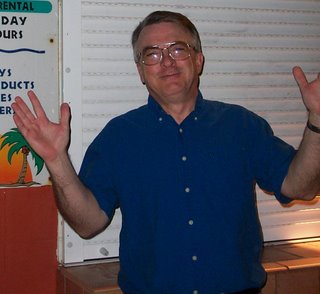On the June 22 Jeopardy program, the Final Jeopardy question essentially asked who the President of the United States was in the year 1895. The qualifying tests for Jeopardy are notoriously rigid (according to all reports), which assures that anyone who makes it to one of the three contestants' podiums will be bright and knowledgeable. However, none of the contestants correctly identified the president in office 114 years ago. One intelligent young woman, who had performed very well earlier in the competition, didn't even venture a guess.
I will confess that presidential trivia is a hobby of mine and I can usually answer any Jeopardy question about presidents with little difficulty. I understand that not everyone shares that interest. Just because someone cannot rattle off the names and dates served of the 43 men who have held the office of President does not discredit their intelligence or expertise in other areas. I may know my presidents, but I'd be quickly out of my depth in the Shakespeare and opera categories.
However, there is a definite linkage between an understanding of the time sequence of historical events and one's enjoyment and appreciation of history. If you have a general idea of when things happened, you have a better understanding about what other things were going on in history at the same time. That leads to appreciating how what otherwise would seem to be random, isolated events actually relate to one another. History is not just a boring series of events and dates. Rather it is a web, a network of great numbers of intersecting causes and effects. Knowing the time lines of history makes this all much clearer, and therefore, must more interesting.
Talking about this with my wife this morning, I commented that I had never known anyone who understood the importance of time in history who found history boring, and I had never known anyone who failed to understand the important of time who found history interesting.
If this is true, it offers an obvious key about how we should be teaching history. If the Jeopardy contestants are typical (and I think they are), then we have not been very effective in getting across the importance of time in history.
By the way, if you thought President Obama was the 44th person to be President of the United States, you should revisit the history books.
Tuesday, June 23, 2009
Subscribe to:
Posts (Atom)
